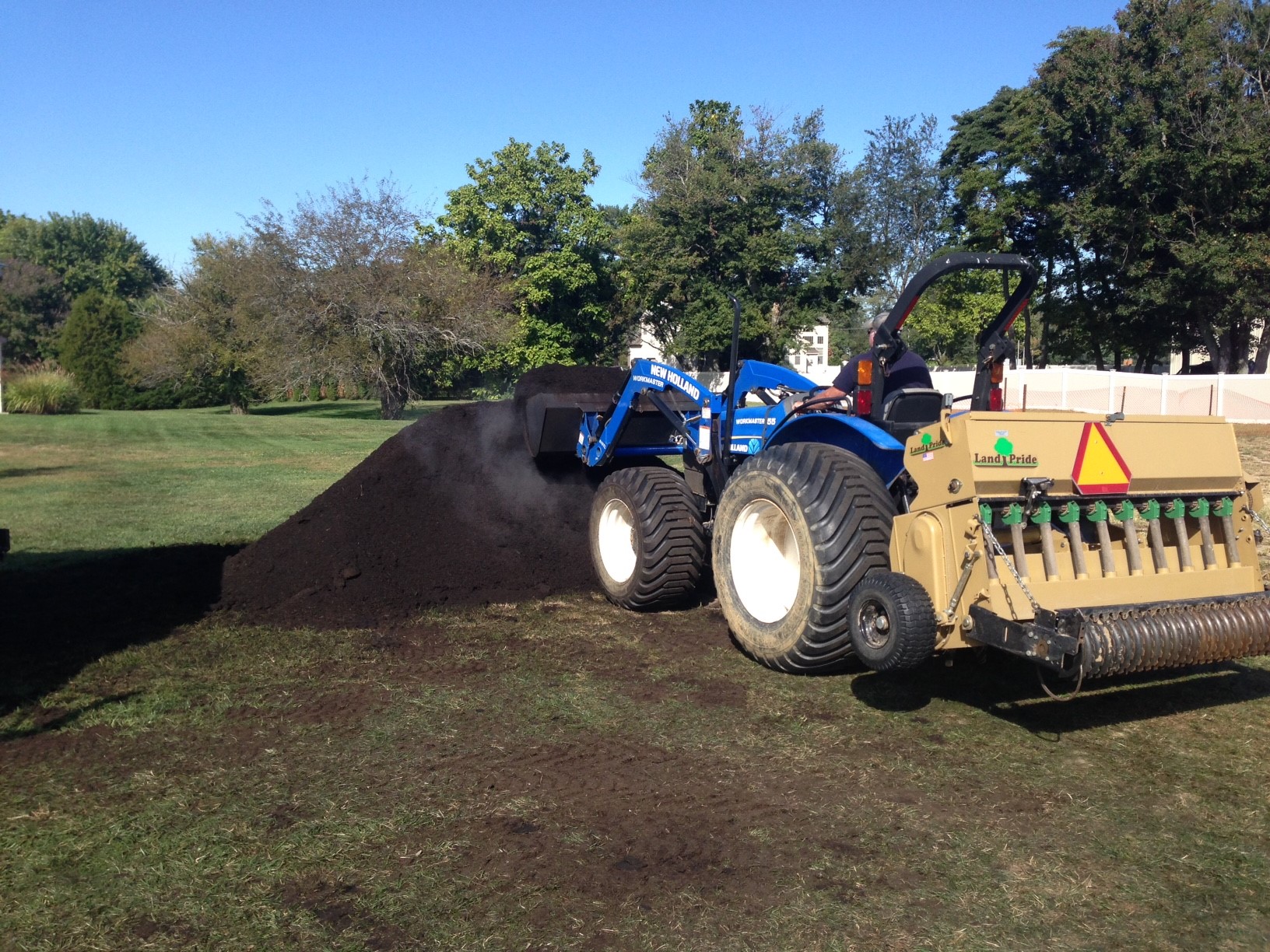Compost vs. Mushroom Soil

Compost vs. Mushroom Soil vs. Mushroom Compost
Ensuring optimal soil conditions is critical for any landscape, construction, or gardening application, so it follows that you’ll want to use the best amendment available for crafting those ideal conditions in terms of soil structure, nutrient density, and more.
However, which solution – compost or mushroom soil – comes out on top?
Let’s dive in.
What Is Compost?
To put it simply, compost is decayed organic matter than can be introduced to soil as a way of providing that soil with key nutrients and more.
Often, the composting process recycles organic matter that would otherwise wind up as waste, creating a high value, nutrient-dense, beneficial-use product perfect for improving our native and/or urban soils.
Compost can be used as topdressing, as a soil amendment, for potting, as an alternative to synthetic fertilizer, for erosion and sediment control, and more – not to mention the benefits it can bring in improving existing soil.
What Is Mushroom Soil?
Like compost, mushroom soil is an organic material.
Though some products are engineered for performance, others simply refer to the material left over from mushroom growth, prior to being composted.
This material can be purchased for use in the same applications as compost but just like any other compost or soil amendment, buyers should always do their research on the product and manufacturer before making a decision. Spent mushroom substrate can be composted into high quality mushroom compost, but not all mushroom soil has gone through this process. Requesting testing on the material from the supplier is always recommended and should be common practice when searching for the best material for your needs.
Is there A Superior Solution?
Poorly manufactured mushroom soil, just like poorly manufactured compost, can still supply nutrients, increase water-holding capacity, and more but may come with significant drawbacks.
Namely, when not completely and properly composted they can exhibit:
- High levels of soluble salts, which can be detrimental to plant and turf establishment, particularly for plants that cannot withstand these elevated salt concentrations.
- High levels of inert materials, such as mushroom containers or other man-made contaminants, that reduce effectiveness.
- A lack of quality control and consistency.
However, when properly manufactured in accordance with all state and federal guidelines by a reputable company, often we do not see these same flaws.
Compost provides a multitude of benefits, including:
- Improvement of soil structure, porosity, and density, which leads to a better plant and root environment
- Increased infiltration and permeability, even of heavy soils, reducing compaction
- Provision of a variety of slow-release macro and micronutrients that encourage shorter germination times
- Significant quantities of organic matter
- Increased water-holding capacity, reducing water loss and leaching
It’s clear, then, that properly manufactured products may excel where some products may not always guarantee performance and consistent results.
In addition, when choosing a product, its imperative that buyers seek out a properly composted product that is enrolled in the U.S. Composting Council Seal of Testing Assurance Program.
Choosing WeCare Compost®
WeCare Compost products are some of the largest participants in the U.S. Composting Council Seal of Testing Assurance Program, meaning we thoroughly and regularly test our compost for pH, soluble salts, moisture and nutrient content, organic matter, stability, particle size, pathogens, inerts, and trace materials.
This commitment to providing consistent, quality compost allows you to take advantage of the many benefits of composting with confidence.
To learn more, visit http://www.wecarecompost.com/.